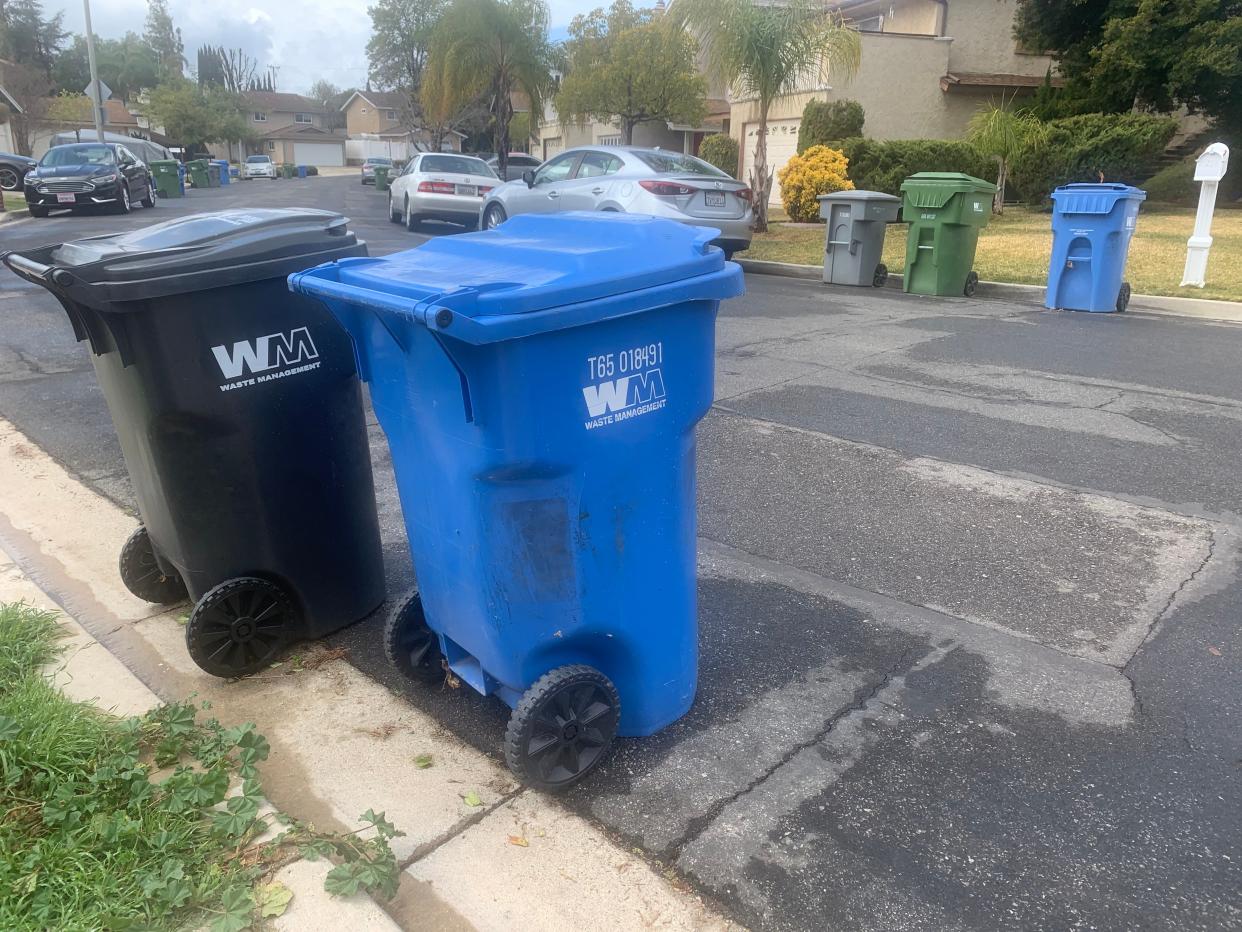Eco-tip: More curbside advice on recycling organics

Several readers responded to last week's column about curbside recycling of food scraps. The programs began in most of Ventura County this month under a new state law, Senate Bill 1383.
Here are a few of the most relevant questions and comments and my responses:
Garbage disposals
Joe Hammock of Simi Valley asked how kitchen garbage disposals “fit into this new law.”
Food disposal down sinks counts as compliance only if the receiving wastewater treatment plant composts its sewage sludge. However, if too many more people rely on garbage disposals, the treatment facilities will get overwhelmed, according to Phil Archer, a former lead wastewater operator at the Ventura Water Reclamation Facility.
“At some point, the space we have available for adding microorganisms would not be enough,” Archer said.
Also, increased food in the wastewater without large increases in water would cause rotting food to accumulate in sewers, resulting in a buildup of toxic hydrogen sulfide gas in the pipes, according to Gina Dorrington, the assistant general manager of operations at the reclamation plant. Managing the buildup, by cleaning the pipes more often or upgrading the cleaning mechanisms, would raise operational costs, she said.
Supermarkets that use industrial-sized garbage disposals pay high permit fees to cover the treatment facility's cost of handling the flow.
Rural residents
At the eastern end of Ventura County, residents of the semi-rural Bell Canyon community are concerned the food scraps mixed with yard waste and lumber in their curbside carts will attract scavenging animals, according to Dennis Zine, general manager of the Bell Canyon Community Services District. The homes are on large lots shared with coyotes, mountain lions and other wildlife.
Rinsing carts with baking soda reduces odors. Addressing the food itself is harder. Some people have found their freezer to be a good place to store food scraps before putting them in the curbside cart. Freezing minimizes odor. Add frozen food scraps to carts on the morning of collection.
For those without the space or the stomach to store food scraps in their freezer, another strategy is to place the scraps under a layer of thatched yard clippings. On the morning before you or your gardener mows the lawn or gathers leaves, place food scraps at the bottom of your yard waste cart.
Spilled carts
Joseph Silvia of Thousand Oaks emailed me concerns about relying on municipal street sweeping trucks to clean up the spillage from carts toppled by animals, wind or other surprises. He noted that too many vehicles park on streets on street sweeping days. “Each vehicle prevents sweeping three times its length,” he wrote.
Countertop containers
Cheryl Snider of Ventura asked about kitchen-sized containers to store food scraps.
Ventura distributed pails to all single-family homes. Ojai offered pails for pick-up, but most local residents must use their own container in the kitchen.
Lining these kitchen containers with a plastic bag is recommended only for areas requiring food scraps to be bagged in organics carts. Others wanting to keep containers clean can line them with newspaper or a paper bag, which can also be dumped into the cart.
Refuse collectors also have concerns about the program. Place carts at curbs with hinges facing your home. Leave enough space between carts for automated grippers. If you cannot close your cart lid, ordinances in some cities require you to buy additional service from your hauler, rather than risk spills during collection or by scavenging birds.
Pick it up!
If some of your curbside rubbish spills, pick it up. Exiting trash truck cabs to clean spills can be dangerous. The on-the-job death rate for trash truck drivers is higher than the rate for police, according to the U.S. Bureau of Labor Statistics’ census of fatal occupational injuries. Truck idling pollution and collection costs are also good reasons not to expect cleanup service by drivers.
The new recycling program presents challenges, but it is important to cut the climate-warming methane emissions from landfills and to comply with state law. Please let me know if you have suggestions.
David Goldstein, an environmental resource analyst with the Ventura County Public Works Agency, can be reached at (805) 658-4312 or david.goldstein@ventura.org
This article originally appeared on Ventura County Star: Eco-tip: More curbside advice on recycling organics in Ventura County

